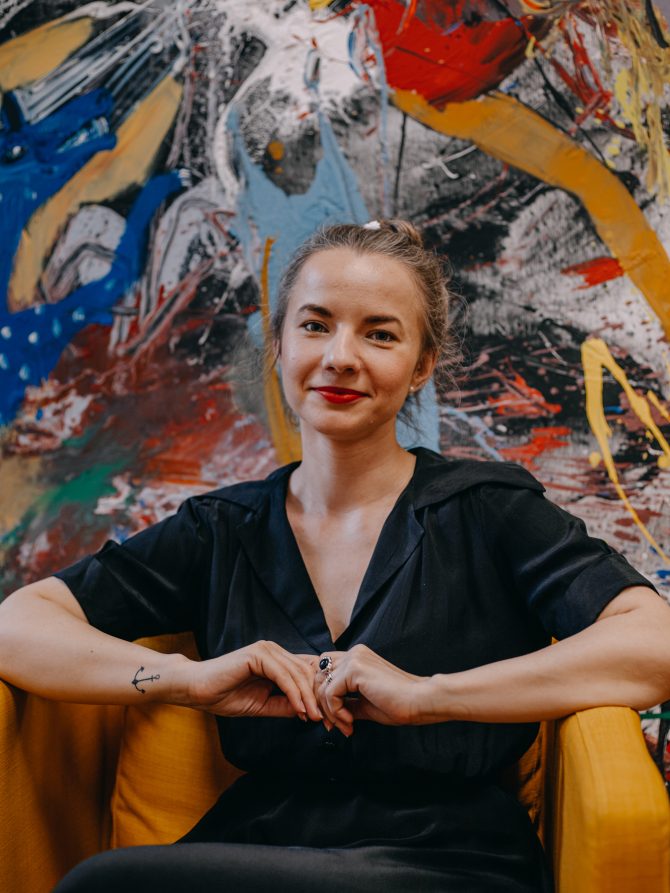Labour Code: What Has Changed Since June 2025?
As of 1st June 2025, a flexible amendment to the Labour Code has come into…
More

What do actually newcomers to the Czech Republic learn at the adaptation and integration course?
A plenty of things! The course takes 4 hours and it is really packed with information, ranging from basic information about the Czech Republic, our culture and places of interest, to ‘hard’ information such as foreigners’ duties, deadlines for submitting applications etc. Course lecturers reflect the dynamics of the group, alternating lighter, more relaxed topics with the more complex, yet extremely important ones. And last but not least, participants also get contacts for integration centres and non-profit organisations for foreigners which they can contact when they need help. In my experience, most participants haven’t heard about centres and services for foreigners before coming to the course at all.
Do you get any feedback from the participants that the course helped them understand how things work in a new country? Or do they rather see it as an obligation they simply have to fulfil?
We get feedback from everyone who is willing to get back to us after the course. Each participant can fill in an anonymous online evaluation questionnaire, write us their comments and observations, praise as well as criticism. I must say that there is almost no critical feedback AFTER the course. As for quality, the courses get excellent evaluation, just like our lecturers and interpreters.
So no serious criticism?
Every now and then, someone writes us that they missed a specific piece of information they personally find important. To give you an example, someone wrote they failed to learn how to get a fishing licence. We are grateful for the feedback but there are limits, we cannot cram everything in 4 hours. This is what integration centres and non-profit organisations are for – they are able to look into individual situations in detail. Foreigners are actually very sceptical before taking the course, they do not feel like going there, they don’t want to pay for it, they’d rather go to work or be free. However, in the end most of them admit that the information they got was useful for them. And not once have we heard “I wish I had taken the course earlier, I wouldn’t have done this mistake / I could have saved oney / I would have known where to seek help,” and so on.
What if foreigners do not attend the course, are there any sanctions?
Yes there are, they are legally liable to a fine if they fail to attend the course in due time – which is within a year from the day of receiving their residence permit card. A fine of up to CZK 10,000 may be imposed – even repeatedly! That’s why we strongly encourage everyone obliged to take the course to fulfil the obligation.
How does it actually work in practice? How do you communicate with foreigners who come to Czechia from all over the world?
There is always a lecturer who speaks Czech and an interpreter who interprets everything into one of nine project languages. These are Ukrainian, Russian, English, Serbian, Vietnamese, Mongolian, Arabic, French, and Spanish. The number of courses in a particular language corresponds with the number of foreigners with the respective places of origin in Czechia. However, a course in another language may also be organised upon request. If there is a group of foreigners who do not understand any of the aforementioned languages, we can hold a course in a language we call ‘rare’ within the project. We’ve had courses in Japanese, Chinese, Thai and other languages. Last year alone, the courses were taken by seventeen thousand people.
Is the format of the course the same for all foreigners? Or do you have to emphasise different things for different groups?
The basic course content is the same for all. However, the lecturer takes into account the place where the course takes places and provides information with local relevance. For example, people who attend the course in Brno will get contacts for Brno medical emergency, the Department for Asylum and Migration Policy in Brno, Brno centres for foreigners, etc. Another factor lecturers reflect is the participants’ country of origin. Lecturers know what needs more emphasis or explanation due to cultural differences. Generally speaking, for example foreigners from Ukraine are culturally closer to us than Asians or Africans who sometimes need more information about certain things. Even four hours are enough for an experienced lecturer to tell what to focus on.
As of 1st June 2025, a flexible amendment to the Labour Code has come into…
MoreSlam poetry is a form of original performance that blends poetry, theatre, and prose, offering…
MoreAs of 1st June 2025, a flexible amendment to the Labour Code has come into…
MoreSlam poetry is a form of original performance that blends poetry, theatre, and prose, offering…
More